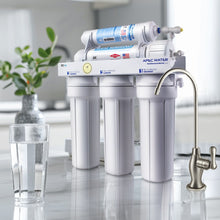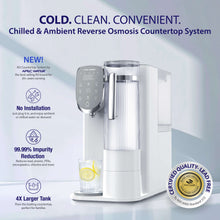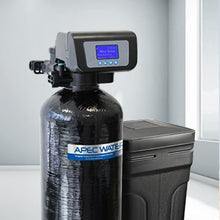DO POLYELECTROLYTE TYPE CHEMICALS FROM WEAK OR STRONG ELECTROLYTES IN SOLLUTION?
Electrolytes commonly exist as solutions of acids, bases or salts. In simple terms, the electrolyte is a material that dissolves in water to give a solution that conducts an electric current. Furt...
With all the quantative data available today it would seem likely that there would be an exact answer to this question. In actuality, it is very difficult to ascertain the answer. Some grain crops...
CAN WETTING AGENTS IMPROVE THE EFFICIENCY OF IRRIGATION WATER?
Media surfactants (wetting agents, penetrants, wetters) describe a group of chemical products which aid in the wetting and movement of water in growing media. These detergent-like products work by...
DOES SALT CONCENTRATION OR SALINITY OF WATER AFFECT SOLUBILITY OF OXYGEN?
When an ionic salt like NaCl is added to water, the ions from the salt introduced will attract the water molecules in an effort to "solvate" the ions. This has the tendency to decrease the weak aff...
CAN WATER ABSORB HEAT BETTER THAN MOST SUBSTANCES?
Water is a one-of-a-kind substance for many reasons. An obvious one is its unique ability to absorb heat. Water is able to absorb heat - without increasing much in temperature - better than many su...
CAN SPECIFIC CONDUCTANCE OF WATER BE AN INDICATOR OF CHEMICAL POLLUTION?
The United States has been measuring water for decades. Millions of measurements and analyses have been made. Some measurements are taken almost every time water is sampled and investigated, no ma...
CAN SOME CONTAMINANTS IMPROVE THE QUALITY OF WATER FOR CERTAIN USES?
While it is possible in some extremely rare cases that polluted water could be used for redundant uses, it is unlikely that water containing the vast number of contaminants possible in this post-i...
CAN PURE WATER BE TREATED BY AN ELECTRIC CURRENT TO SEPARATE IT INTO ACIDIC AND ALKALINE COMPONENTS?
The answer is a difficult one because pure water will not conduct electricity and does not decompose or undergo permanent changes with an applied electric field. Pure water is weakly ionized and a...
The hydrological cycle of the earth is difficult to study. Why is this? Largely because the water cycle has no starting or ending point. The sun, which drives the water cycle, heats water in the o...
The oceans contain 97 per cent of the world's water. All of the Earth's natural elements are present in this water, the most common being sodium and chloride, which together form salt. The salinit...
The unique thing about oxygen is that it can diffuse directly between the air and water and this diffusion is improved by both air and water turbulence. The addition of chemicals to water will usu...
If you suspect contaminants in your drinking water, check your annual water quality report from your water supplier or call the water supplier directly. Often, county health departments perform tes...
Private Wells Should Be Sited Far from Septic Tanks and Field Lines
Most rural homes use some types of septic system to treat household wastewater. These systems generally are economical and effective in treating these wastes. However, a septic system must be prope...
HOW FAR SHOULD PRIVATE WATER WELLS BE SITED FROM ROAD OR HIGHWAY BOUNDARIES AND PROPERTY LINES?
Your well is a direct connection between you and your water supply. Contaminants can flow down your well as easily as water flows up it. The farther away from your well you are, the more sand, gra...
A drinking water well should be sited as far away as possible from sources of potential pollution or contamination of groundwater for obvious reasons. Some states and/or counties require that a wa...



